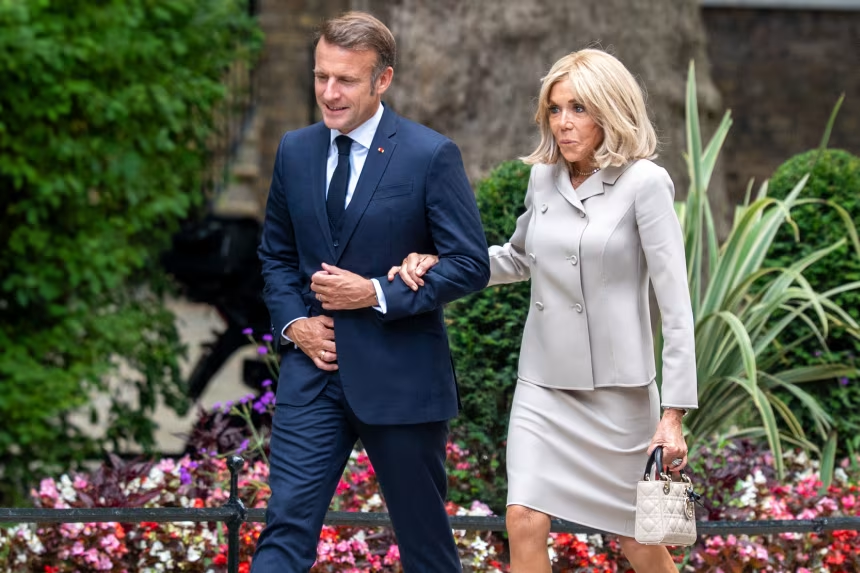A landmark cyberbullying trial has opened in Paris, where ten individuals stand accused of spreading false and defamatory claims about France’s First Lady, Brigitte Macron. The case, which has drawn international attention, highlights the growing struggle between free expression and online defamation in an era where misinformation spreads faster than truth.
The Origins of the Smear Campaign
The allegations date back to a viral conspiracy theory that falsely claimed Brigitte Macron was born male under the name “Jean-Michel Trogneux” — her brother’s name. This baseless rumor gained traction on social media platforms, leading to thousands of reposts, videos, and memes targeting the First Lady.
What began as fringe gossip soon evolved into a coordinated wave of online harassment, with many posts including sexist and transphobic remarks. The First Lady, who has largely avoided public political controversies, decided to take legal action after repeated defamation and cyberbullying intensified throughout 2024.
Who Is on Trial
The ten defendants — eight men and two women, aged between 41 and 60 — come from a variety of professional backgrounds, including teaching, IT, and local politics. French investigators allege they were among the most active figures in promoting and amplifying the defamatory claims across social media platforms such as X (formerly Twitter), Facebook, and YouTube.
One of the most prominent figures in the case is a social media influencer known online as “Zoé Sagan,” along with a self-proclaimed medium, both accused of producing and sharing videos viewed millions of times. The court will examine whether their actions constituted a deliberate campaign to harm the First Lady’s reputation.
A Fight for Dignity and Accountability
For Brigitte Macron, the case represents more than a personal battle — it is a statement against the normalization of digital abuse. The First Lady’s legal team argues that the defendants’ actions went beyond freedom of speech, amounting to a sustained campaign of public humiliation based on lies and prejudice.
French prosecutors have charged the defendants with online harassment and defamation, crimes that carry sentences of up to two years in prison and significant fines. The trial will also assess the extent to which those who share or repeat defamatory material can be held legally responsible.
Global Echoes of Misinformation
The case has parallels beyond France. In recent years, high-profile figures around the world have faced organized online disinformation efforts, often with gendered or personal attacks designed to undermine credibility. Analysts say Brigitte Macron’s case could set an important precedent for how governments and courts address online abuse against public figures.
Earlier this year, the French First Lady and her husband, President Emmanuel Macron, also filed a separate defamation suit in the United States against a political commentator who repeated similar claims for profit. The international scope of these actions reflects how misinformation transcends borders and legal systems.
A Broader Debate Over Free Speech
The trial also reignites debate over where free expression ends and harassment begins. Critics of the prosecution warn that overly broad definitions of cyberbullying could risk chilling legitimate criticism of public officials. However, supporters argue that no one — not even a public figure — should endure targeted personal attacks or fabricated claims about their identity.
Legal experts say the verdict could shape future laws across Europe concerning online conduct, digital accountability, and the responsibility of social media platforms to prevent defamation and hate campaigns.
France Takes a Stand Against Digital Abuse
France has recently toughened its stance on cyber harassment, introducing stricter penalties for online defamation and expanding laws to include digital abuse targeting private individuals and public figures alike. The government says it hopes the case will send a strong message about the real-world consequences of spreading lies online.
For Brigitte Macron, the trial is both a test of justice and a call for civility in the digital age. As proceedings continue, it stands as a powerful reminder that words — especially when weaponized online — can carry consequences far beyond the screen.
















Leave a Reply